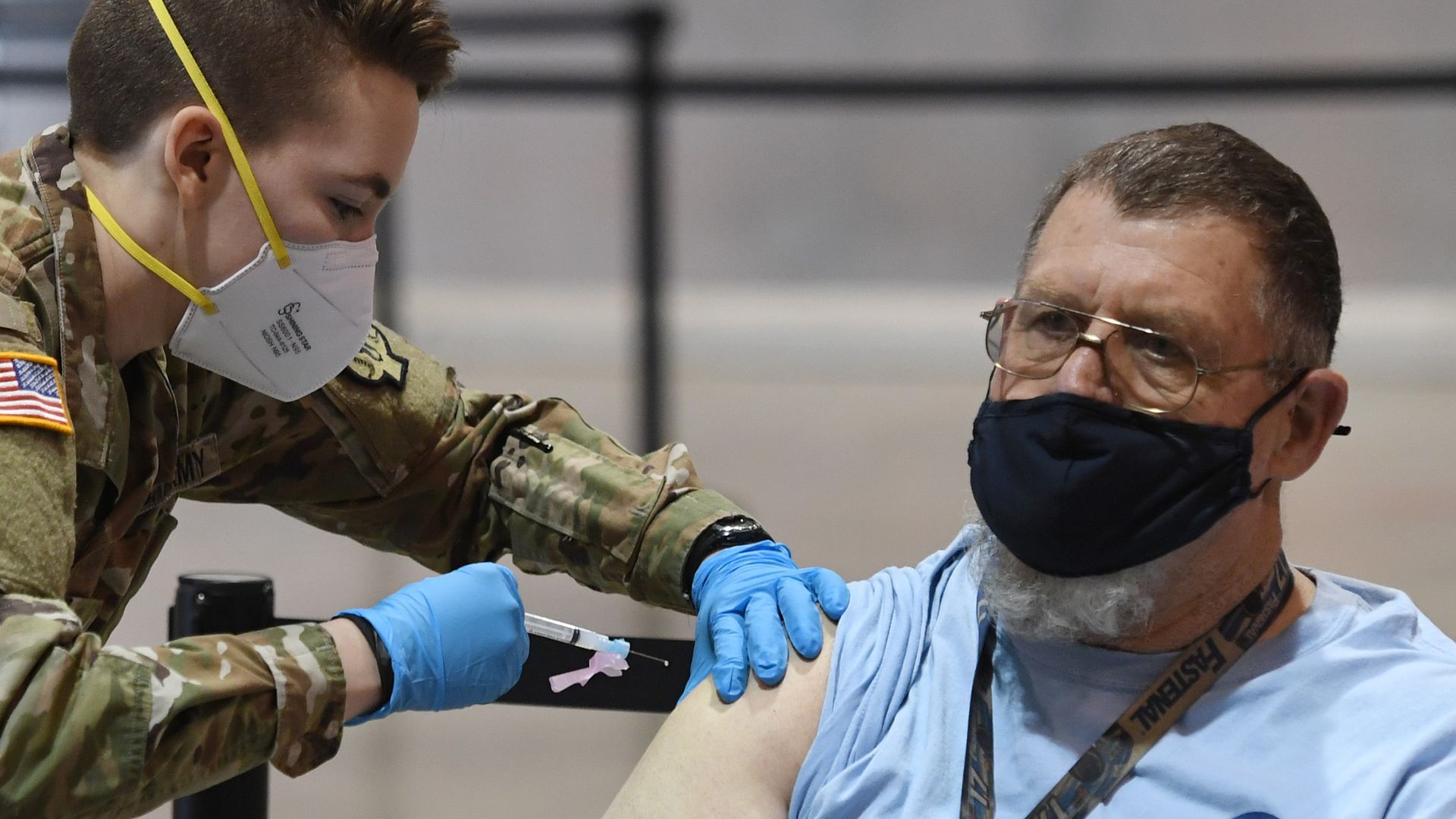Hesitancy lingers around the COVID vaccine
Add Axios as your preferred source to
see more of our stories on Google.

A man in Nevada receives a COVID-19 vaccine shot on Jan. 14. Photo: Ethan Miller/Getty Images
Even as government websites crash under the pressure of demand for the COVID-19 vaccine, surveys show many Americans — including health care workers — still have their doubts.
Why it matters: Unless lingering skepticism about the COVID-19 vaccine is dispelled, achieving herd immunity will be a challenge — even with improved distribution.
By the numbers: In the first survey exclusively focused on vaccine hesitancy among U.S. health professionals, Surgo Ventures reported on Friday it polled 2,500 health care workers and found that of the 53% who had been offered the shot, 15% said they refused to take it.
- Health care workers at long-term care facilities — home to the populations most vulnerable to COVID-19 — were less likely to say they'd get the vaccine than workers at hospitals.
- The big picture: An international poll released by Reuters on Friday found less than half of Americans polled said they would definitely be willing to take a COVID-19 vaccine when offered — a much lower percentage than most other countries.
Be smart: It may seem unnecessary to worry about vaccine hesitancy at a moment when the biggest problem seems to be getting shots to the millions of Americans who very much want to get vaccinated.
- But as much as 80% to 90% of the population may need to achieve immunity through either infection or vaccination to fully curtail the pandemic, which will mean convincing a large proportion of those expressing hesitancy now to get their shots.
Yes, but: The good news is the Reuters poll found even in the U.S., only about a quarter of those polled said they would definitely not get the vaccine, which means a large chunk should be convincible with incentives and better messaging.
- The bad news is there are active efforts to spread disinformation about the COVID-19 vaccines.
- On Friday the European Medicines Authority revealed that an ongoing investigation into a cyberattack found evidence that "correspondence has been manipulated by the perpetrators prior to publication in a way which could undermine trust in vaccines."
